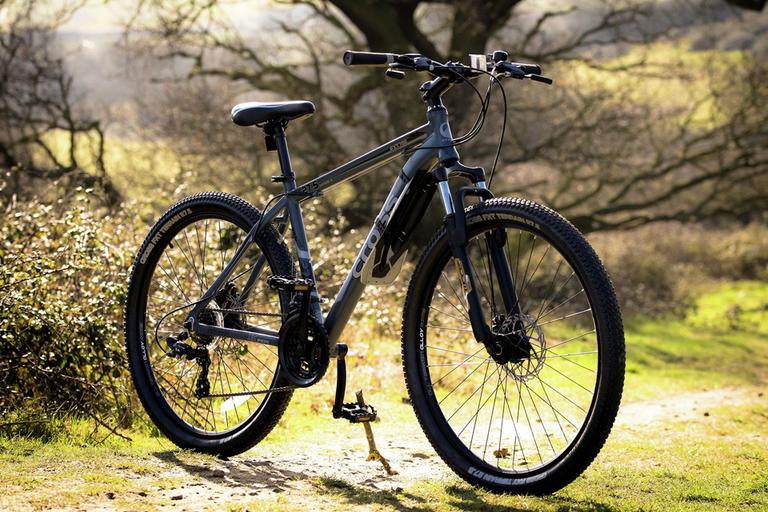The Ultimate Guide to Buying a Bike in Nigeria: Prices and Where to Buy
The Ultimate Guide to Buying a Bike in Nigeria: Prices and Where to Buy
Are you looking to get around faster and in style? Then, you should consider buying a bike! With the current state of transportation in Nigeria, having a bike is a great way to save money and get around easily. Whether you’re looking for a road bike, mountain bike, BMX bike, or a folding bike, this guide will give you all the information you need to make the best purchase. It contains detailed information on the different types of bikes, prices, and where to buy them in Nigeria. You’ll also find handy tips on how to choose the right bike for your needs. So, let’s get started and learn all about buying a bike in Nigeria.
Types of Bikes
There are many different types of bikes, but we’ll be focusing on the most common ones. Below are the types of bikes you’ll find in Nigeria. – Road Bikes – These are designed for long-distance riding on smooth roads. They have narrow tires, flat handlebars, and a lightweight frame. The smooth ride and lightweight design make them a great option for commuters who are going long distances to work or school. – Mountain Bikes – These bikes are designed to be ridden on rough terrain. They usually have wider tires, a heavy-duty frame, and a more upright riding position. These bikes are built to withstand rough roads and rough weather conditions, making them great for commuters who live in rural areas. – BMX Bikes – These are designed for tricks and high-intensity riding. Their lightweight frames and small wheels make them easy to maneuver. BMX bikes are great for competitive riders who want to show off their skills in competitions. – Folding Bikes – These bikes are designed to be compact and easily stored. They are great for commuters who live in big cities, since they can easily store them in small areas. These bikes have a few extra features that make them more durable.
Prices of Bikes
The price of a bike is determined by the model, size, and brand. The price can range between N150,000 to N600,000 depending on your needs and budget. Below is a list of some of the most popular brands and their corresponding prices. – Trek – N300,000 – N600,000 – Giant – N300,000 – N600,000 – Scott – N300,000 – N600,000 – Merlo – N150,000 – N300,000 – Shoboo – N150,000 – N300,000 – Odiore – N150,000 – N300,000 – Shimano – N300,000 – N600,000
Where to Buy Bikes
The best place to buy bikes in Nigeria is at an authorized dealer. Most dealers are authorized to sell a variety of brands and types of bikes. This reduces the risk of buying a fake product, since you know that it’s genuine. If you buy from an authorized dealer, you can also be sure that the product has been checked and verified to be in good condition. In addition to this, authorized dealers have trained staff that can give you the best advice on what type of bike to buy. Below is a list of some of the best places to buy bikes in Nigeria. – Dealers – Dealers are authorized dealers that sell a variety of brands and types of bikes. They are a great place to buy a bike, since you know it’s genuine and verified. – Online Retailers – Online retailers like Jiji and OLX are great places to buy bikes. However, you should make sure you know what you’re looking for and that the seller is legitimate. – Friends/Family – If you know someone who has a bike you like, you can ask them where they bought it from. This is a great option, since you can ask them about the product and make sure it’s of good quality.
Tips for Choosing the Right Bike
When you’re choosing a bike, you should keep a few things in mind. First, you need to decide what type of ride you want. For example, are you going to be riding on rough terrain or smooth roads? Next, you need to decide on the frame size. The frame size determines how tall you’ll be when riding the bike. If you’re buying a bike for your child, you need to get the right size. Make sure that the seat is at the right height so that they can easily reach the pedals. Finally, you need to decide on the features you want your bike to have. Do you want a bike with a bell? Or one with a basket? These are the things you should keep in mind when choosing a bike.
Conclusion
Bikes are an excellent way to get around quickly and efficiently. They are also a great source of exercise, so you can stay healthy while getting from place to place. With this guide, you’ll know all about the different types of bikes and where to buy them in Nigeria. You can also find out their prices and which features you should look for when choosing a bike. With this information, you can make an informed decision when buying a bike.








LEAVE A COMMENT
You must be logged in to post a comment.